So far in 2015, I have played 28 unique board game titles. Of those, 7 are titles that I previously listed in Games I played in the summer of 2014:
- 7 Wonders
- Hanabi
- Lord of the Rings: The Board Game
- Love Letter
- Puerto Rico
- Settlers of Catan
- Small World
And 4 are titles that I listed in Games I played in the fall of 2014:
- Alien Frontiers
- Bang! The Dice Game
- Machi Koro
- Village
New experiences
Of the 17 remaining titles, 6 were new games that I played for the first time this year. They are:
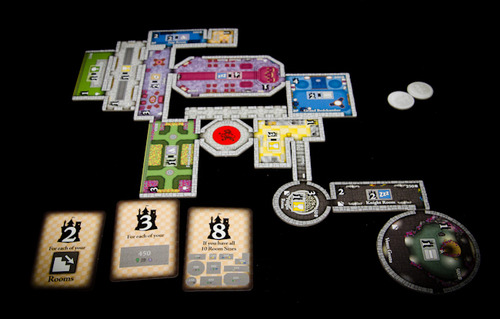
- Castles of Mad King Ludwig – The box has a beautiful picture of Neuschwanstein Castle on it, but this is not indicative of the gameplay. Each player has different requirements for how they build their castle. The better they are able to fulfill these requirements, the more points they will get. Manage your money well by purchasing the rooms that give you the most bang for the buck, and you may have the highest score (if not the most beautiful castle) at the end of the game. A very fun game, though slightly on the long side.
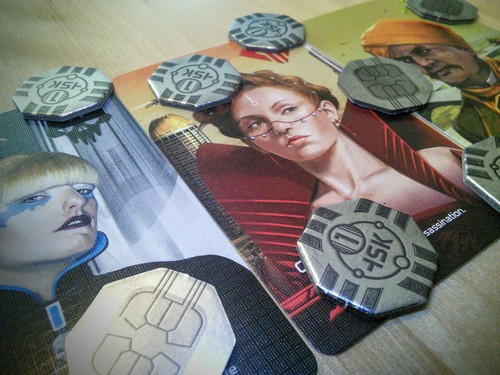
- Coup – Each player has two cards, indicating what abilities they have in the game. The catch is that you can lie about which cards you have, and perform abilities associated with a card you don’t possess. If someone challenges you and catches you in a lie, then you lose a card. On the other hand, if you were telling the truth, then the challenger loses one of their cards. Lose both of your cards and you’re out of the game. The last player standing wins. Short and fun, this game is always popular.
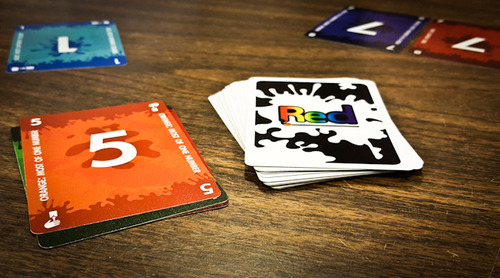
- Red 7 – Very unique. This game is just numbers and colors, but there’s a ton of strategy. Each color indicates a different win condition. Maybe you need to have the highest card, or maybe you need to have the most of a single number or color. Either play a card or change the goal each turn. If you aren’t winning at the end of your play, then you’re eliminated. If you are the only player left, then you win. This game can be played at various levels of complexity, making it ideal for beginners and experts alike.
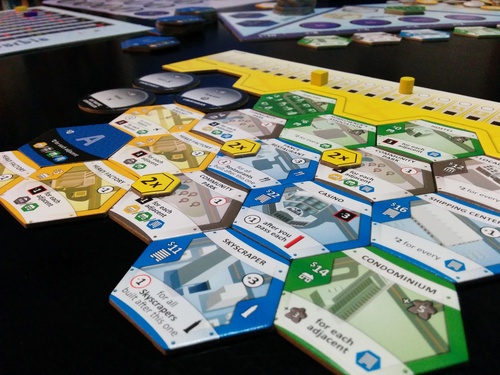
- Suburbia – This is designed by Ted Alspach, who is also the designer of Castles of Mad King Ludwig. While the games are similar, they are certainly not the exactly the same. Buy buildings and other locations with which to build your town. Manage your income and your population well, and you will end up with the highest score at the end of the game.
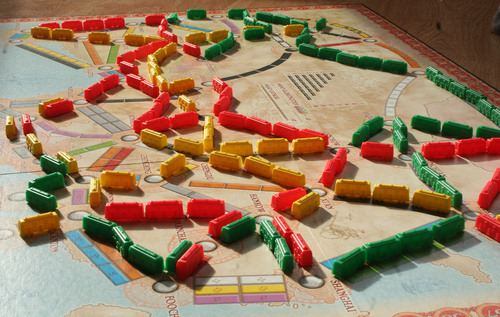
- Ticket to Ride: Team Asia – Yes, I have played Ticket to Ride many times, and on many different maps, but this is the first time that I have played with teams. It works surprisingly well. The team that cooperates the best will be triumphant.
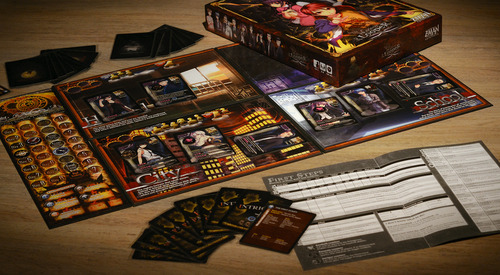
- Tragedy Looper – I am the bad guy, trying to make some tragedy happen. My opponents are the protagonists, trying to prevent the tragedy. I will succeed, and they will fail. The tragedy will occur. However, the protagonists are able to go back in time and try again. Use deductive reasoning to figure out what the tragedy is and how to prevent it. I love this game, but I haven’t yet found anyone else who enjoys it as much as I do.
Old favorites
The other games I have had in my collection for a while, and keep coming back to. They are:

- Animal Upon Animal: Balancing Bridge – Roll the die to pick an animal to add to the pile. Get three specific animals together to win. This game works great for adults and children alike.
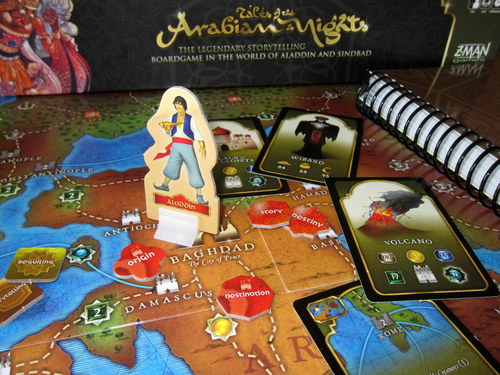
- Tales of the Arabian Nights – This is more of a shared experience than a game. Winning or losing is almost completely meaningless. It’s the journey that makes this game fun. Draw a card and consult the manual to determine your foe. Decide your response to the challenge, and discover the results. It’s almost always a surprise. This is somewhat like a Choose Your Own Adventure book that you all experience together as a group, and it’s Nora’s favorite game.
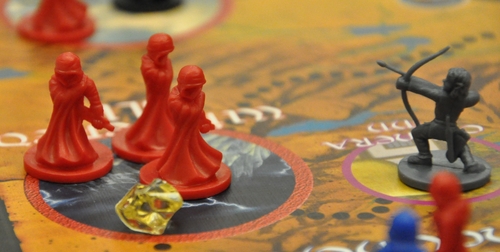
- Defenders of the Realm – This game isn’t mine. It belongs to my sister, Laurel, and I’m always excited to play it with her. All the players work together to defeat the evil hordes plaguing our realm. It’s a difficult task. So difficult, in fact, that after several plays, I still have never won the game once. I have fun trying, though.
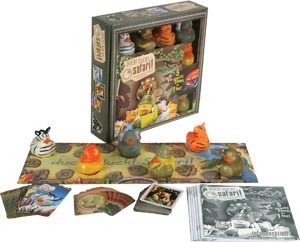
- duck! duck! SAFARI! – This box has several games in it, and several rubber ducks as well. Each duck is a different animal: Elephant Duck, Zebra Duck, Monkey Duck, and so on. My favorite game is a race that has surprisingly deep strategy, despite the cute trappings.
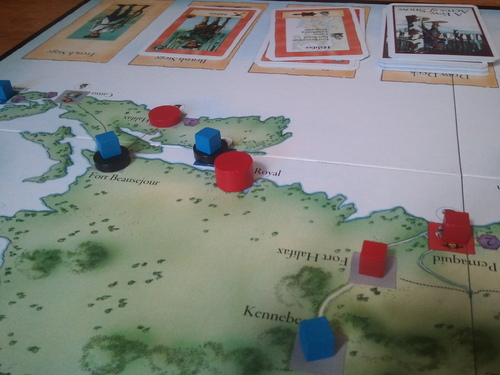
- A Few Acres of Snow – This game is a recreation of the French and Indian War of the 18th century. One player controls the French troops while the other controls the British. Ally with the Indians and raid or attack your opponent. Each side has different goals, and different means to those goals. A Few Acres of Snow is a complicated but rewarding game.
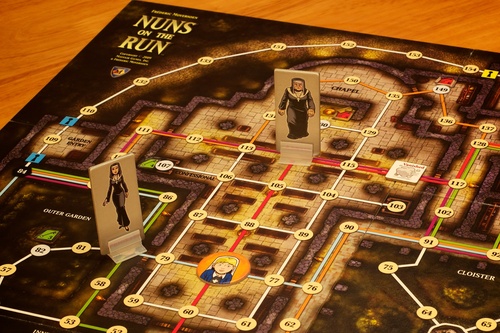
- Nuns on the Run – Another many-against-one game, Nuns on the Run is very different from Tragedy Looper in both mechanics and theme. One player controls the older nuns: the Prioress and the Abbess. The other players are novices, trying to sneak through the abbey on various missions without getting caught. I absolutely adore this game, but because of the complexity involved, there are very few people that I am willing to play it with.
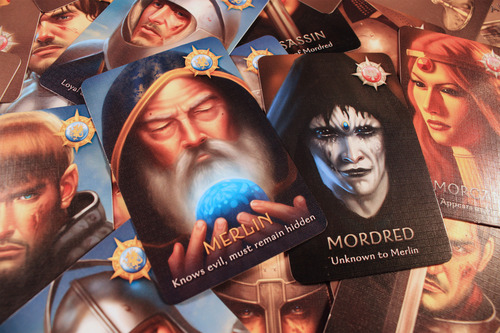
- The Resistance: Avalon – Each player is a knight and is either loyal to King Arthur or a follower of the evil Mordred. All the knights go on quests, and the evil knights secretly subvert the purposes of the good. If the good guys can ferret out the evil spies, then they will succeed in their quests. Otherwise, evil will triumph. This is a very short and fun game, but it requires a minimum of five players, so I don’t get it to the table too often.
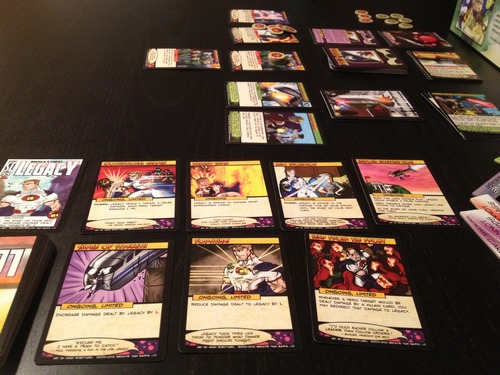
- Sentinels of the Multiverse – Each player is a different comic book hero, and all the heroes work together to defeat the evil villain. Strategies vary greatly from one hero character to another, and also from one villain to another. The heroic team that can best work together, making use of the strengths and abilities of each member, will successfully defeat the enemy.
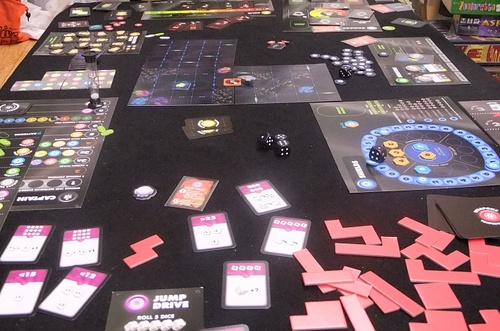
- Space Cadets – You are all cadets, learning the ins and outs of controlling an intergalactic space ship. Unfortunately, your services are required well before any of you have achieved competency. You are to be sent, wholly unprepared, on a deadly mission. Each player has a role: Engineering, Weapons, Sensors, Helm, etc. All the roles must cooperate to be successful. This game does an excellent job of making you feel like an incompetent fool who is in way over your head.

- Timbuktu – Lead your caravan of camels through the desert, avoiding thieves along the way, to deliver goods at your destination. Use deductive reasoning to determine when and where the thieves will strike. The player who ends the game with the most valuable cargo of goods will win.

- Whist – This is a classic Bridge-like, partner-based game for four players. I have consistently played Whist with my family since I was a child. I have never met anyone else who knows how to play, but whenever Marlene and I get together with my parents, it is one of our favorite activities.
– danBhentschel

